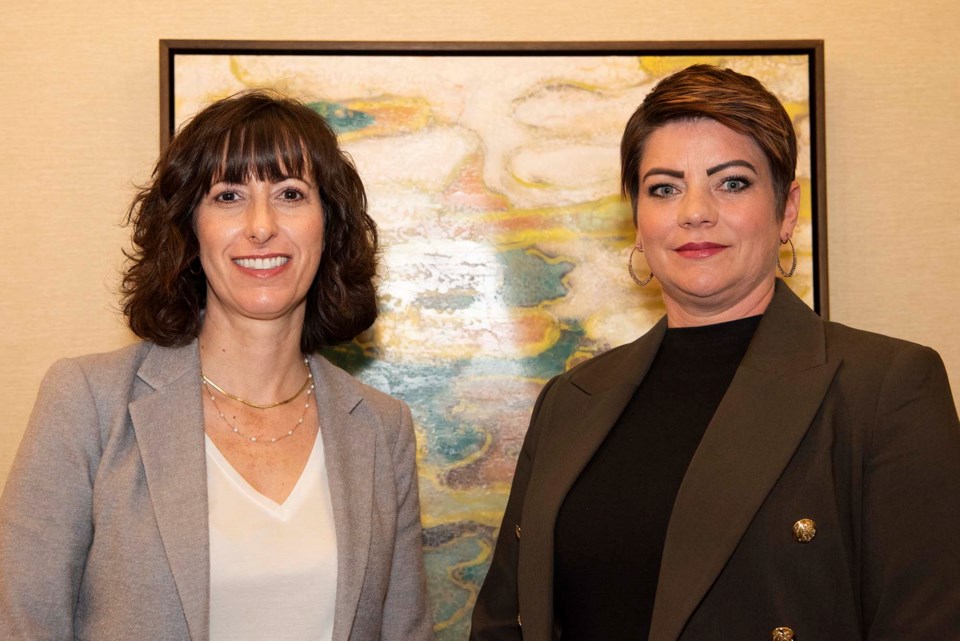The grand chiefs of most of Alberta’s First Nations have called on the province to proclaim a counselling college and address an ongoing mental health crisis.
Treaty 8 First Nations of Alberta Grand Chief Arthur Noskey, Confederacy of Treaty 6 First Nations Grand Chief Cody Thomas, and Nicole Imgrund, chair of the Association of Counselling Therapy of Alberta (ACTA), called on the province Feb. 23 to immediately proclaim the College of Counselling Therapy of Alberta (CCTA) to address the mental health and opioid crisis in First Nations communities.
Imgrund, who owns Rivers Edge Counselling in St. Albert, said Alberta’s 4,000 counselling professionals are not currently subject to oversight or minimum standards as they are not a regulated health profession.
“It’s a very serious risk to the public,” she said, and it means there’s no way to ensure counsellors have the cultural training needed to help Indigenous clients.
Proclaiming the CCTA would create the oversight body needed to regulate counsellors and hold them to standards, Imgrund explained.
“We could open the college tomorrow, but the government’s been stalling,” Imgrund said.
First Nations weigh in
In his letter to Alberta Mental Health and Addiction Minister Dan Williams, Noskey said Treaty 8 First Nations have seen an unprecedented mental health and addictions crisis in recent years related to residential school trauma and the COVID-19 pandemic that required greater access to competent and safe mental health counselling to address. Five northern First Nations had declared local states of emergency due to mental health crises.
“During this time, the Government of Alberta has stalled work on the CCTA,” Noskey noted, which has blocked First Nations from using federal funding for mental health on counselling services and getting the help they need.
Noskey said counselling therapists in Alberta should be held to the same safety and quality controls as other health professions.
“We call on the Alberta government to proclaim the CCTA without further delay.”
In his letter to Williams, Thomas said Treaty 6 leaders declared at state of emergency last year due to an ongoing mental health crisis and rising numbers of opioid deaths in their communities. While leaders previously voiced concern that the province had not done adequate consultation with Treaty 6 nations before writing legislation for counselling therapists, Thomas said ACTA has worked closely with the Confederacy in the last three years and committed to work with them on training standards and cultural and traditional safety protocols. Treaty 6 chiefs now recommend the province proclaim the CCTA so the college can work on oversight and accreditation and provide residents with culturally safe mental health services.
Regulation gap
Laura Hahn, interim CEO for the CCTA, said First Nations councillors have told her of long waiting lists for mental health services in their communities. Some have trained counsellors their residents can’t use because their federal health benefits won’t cover unregulated professions.
“They’re turning away First Nations clients on a regular basis because they can’t access the federal funding,” Hahn said.
Hahn and Imgrund said the college was working with the Métis Nation of Alberta and planned to team up with Treaty 7 First Nations this spring to start training counsellors.
Imgrund and Hahn said these letters of support from Treaty 6 and 8 leaders were important as the province has previously cited Indigenous concerns as a reason not to proclaim the CCTA.
In an email, Hunter Baril, press secretary for the office of the minister of mental health and addiction, said the province was working to establish the best path forward to regulate counselling therapists as part of its health care reforms.
“We appreciate the work done by the ACTA and First Nations to rectify their specific concerns that were raised in the past, and we look forward to continuing engagement with First Nations as we do regularly on a variety of issues.”



